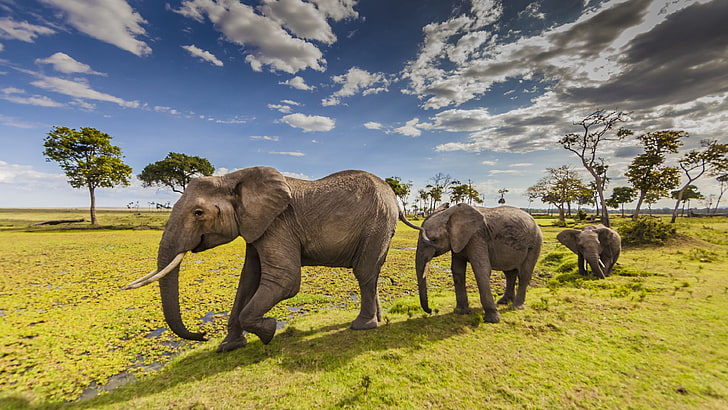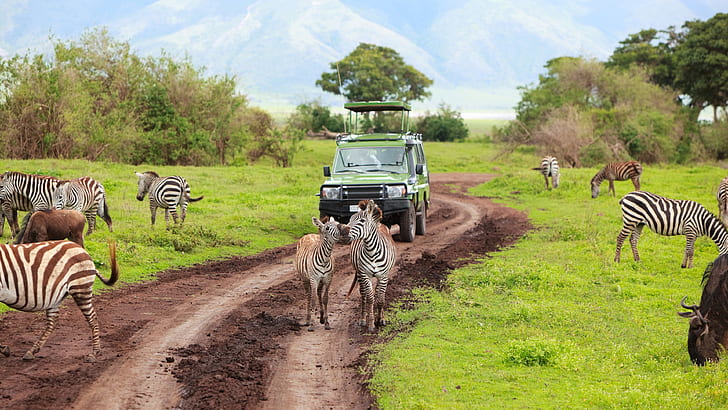Introduction: The wonders of nature are boundless, and immersing ourselves in the wild can be a life-changing experience. From majestic safaris in Africa to the awe-inspiring landscapes of national parks worldwide, exploring the beauty of wildlife and natural habitats offers a unique opportunity for both adventure and education. In this blog post, we will delve into the magic of safaris, the significance of animal conservation, and the importance of responsible wildlife tourism in preserving our natural heritage.
- The Enchanting World of Safaris: Safaris take us on a captivating journey through the heart of the wilderness, offering unparalleled encounters with diverse wildlife. Countries like Kenya, Tanzania, and South Africa are renowned for their remarkable safaris, where you can witness the “Big Five” (lion, leopard, elephant, buffalo, and rhinoceros) in their natural habitats. Game drives, walking safaris, and even hot air balloon rides allow us to observe and appreciate the remarkable beauty and intricate ecosystems of the animal kingdom.

- Conservation: Protecting Our Natural Heritage: Animal conservation is crucial to ensure the survival of endangered species and maintain the delicate balance of ecosystems. Safaris and national parks play a significant role in funding conservation efforts through tourism revenues, helping protect habitats, combat poaching, and support local communities. Responsible tourism practices and education about conservation are essential to safeguarding the incredible biodiversity we are privileged to witness.
- Responsible Wildlife Tourism: Responsible wildlife tourism emphasizes ethical practices that prioritize animal welfare, habitat preservation, and the well-being of local communities. When planning a wildlife-focused trip, consider tour operators and accommodations that adhere to responsible tourism guidelines. Choose reputable operators that prioritize animal conservation, minimize disturbance to wildlife, and promote sustainable practices.
- National Parks: Preserving Natural Treasures: National parks are sanctuaries that protect unique ecosystems and allow us to experience the untouched beauty of nature. From the iconic Yellowstone National Park in the United States to Serengeti National Park in Tanzania, these protected areas provide a safe haven for wildlife and offer visitors an opportunity to witness the wonders of nature up close. Engage in activities such as hiking, birdwatching, and guided tours to explore these pristine landscapes while respecting park regulations.

- Understanding Ecosystems and Biodiversity: Wildlife tourism offers an unparalleled educational experience, providing insight into the delicate interconnections between species and their habitats. By observing animals in their natural environment, we gain a deeper appreciation for their roles in the ecosystem and the need to conserve these habitats. It’s an opportunity to learn about biodiversity, the importance of conservation, and the impact of human activities on the natural world.
- Community Involvement and Sustainable Tourism: Responsible wildlife tourism extends beyond animal conservation and encompasses the well-being of local communities. Supporting local businesses, engaging in community-led initiatives, and respecting local cultures and traditions are vital aspects of sustainable tourism. By investing in community-based tourism projects, we contribute to the preservation of wildlife habitats and the economic empowerment of local populations.
- Wildlife Rehabilitation and Rescue Centers: In addition to safaris and national parks, consider visiting wildlife rehabilitation and rescue centers. These facilities provide sanctuary for injured, orphaned, or confiscated animals, often with the goal of reintroducing them to the wild. Visitors can learn about conservation efforts, animal rehabilitation, and the challenges faced by wildlife in the modern world. These centers offer a unique opportunity to support conservation while promoting awareness and understanding.